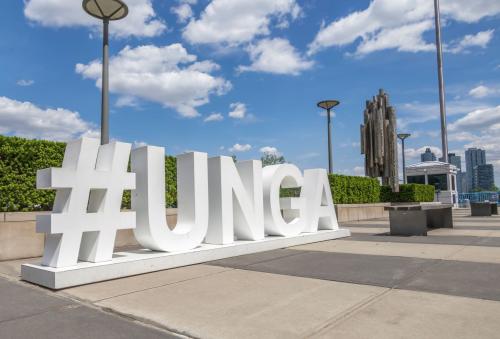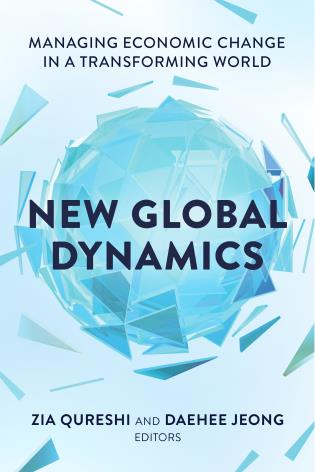Read the executive summary of this paper »
Introduction
For more than six decades, the divided Korean peninsula has been a source of tension and a constant challenge for the major global powers—including the United States, China, Japan, and Russia—and the rest of the international community. There is still no internationally agreed formula for the status quo on the Korean peninsula, nor for the “Korean game” —relations between North and South. Furthermore, North Korea’s legitimacy and status are yet to be recognized by the West. The animosity associated with the Korean issue has a spillover effect on regional and international affairs, including non-proliferation and WMD issues. No matter how one regards the North Korean regime, its existence is a fact of life, and should be recognized, at the least, for pragmatic purposes.
Internationally, there is a tradition of seeing North Korea as a “rogue state” and a member of the “axis of evil.” Eventual regime change still seems to be the basic underlying objective of ruling elites in many powerful countries. At the same time, there is more or less unanimous agreement that regime change is now beyond reasonable possibility. It is difficult to expect that the DPRK will, in such a situation, trust its opponents and believe in the possibility of “peaceful coexistence.”
Despite internal and external pressures, North Korea remains resilient and its leadership resists change for fear of endangering the political regime. The recent turn toward hardline policies and increased coordination with Washington by Seoul’s new administration has deepened Pyongyang’s concerns. In January 2009 it went so far as to abrogate all agreements that it has concluded with South Korea. Inside the country this increase in tensions has led to a reversal of the reforms and achievements of the last decade, and has actually prompted attempts to reinvigorate the repressive system.
Unless Pyongyang’s leaders are presented with a real alternative to regime change – that is, a vision in the West of a real future for the DPRK that is described in no uncertain terms – it is difficult to expect any changes in the substance of Pyongyang’s policies vis-à-vis the West. The simple pattern that external animosity ignites reciprocal animosity (verging on paranoia) in Pyongyang has become standard in the outside world’s dealing with the DPRK throughout the six decades of its existence.
Is it not time to formulate a realistic concept for the DPRK’s future status that makes the options clear? It took the previous Republican administration five years to change its fruitless confrontational policies, based on the “stick,” to a constructive approach. It is presumed that the Obama administration will be more pragmatic and forthcoming, and hopes for a breakthrough in Korea are at an all-time high. But overly high expectations could lead to disappointment. The reality is that the U.S. establishment’s final goals vis-à-vis the DPRK are still unclear, causing distrust not only in Pyongyang, but in other capitals as well. Many see the U.S.’s 2007-2008 conciliatory approach as merely tactical, not long-term and not irreversible.
On the other hand, uncritical and ill-coordinated aid to Pyongyang by previous administrations in Seoul, within the framework of the Sunshine Policy, may have changed the paradigm of inter-Korean relations, but has done little for the modernization of North Korea and thus has compromised the “carrot” approach. Chinese assistance to North Korea has also aimed at keeping the country stable, not encouraging its progress. Pyongyang is now used to getting what it asks for, and finds it difficult to digest conditional assistance, especially when the donors’ real goals and long-term agenda are unclear.
Russian experience and expertise could be useful in this regard. The need to preserve stability and create prerequisites for development on the Korean peninsula are widely seen in Russia as the only rational way for managing its problems. This approach presupposes forging mutual understanding and coordination with all the countries that are involved, especially the U.S. and China. In the framework of the Six-Party Talks over the last several years, Russia-China consultation has progressed considerably, but can we say the same about Russia-U.S. coordination? In Washington, Russia’s goals and capabilities are not fully understood, and its policies are viewed with suspicion. However, the North Korea problem is one of the few international problems in which Russia and the U.S. see things similarly and can fruitfully cooperate.
Coordination should probably start from a conceptual level, and a common understanding should be reached. I believe engagement and “conventionalization” of the DPRK– with continuity of its political elite – would best serve the interests of the North Korean people, South Korea and the broader international community, including Russia and the U.S.. Based on past Korean and international experience, a realistic long-term concept for the transformation and continuity of North Korea’s political elite and step-by-step modernization of the country should be worked out and agreed upon between the main international “actors.” Such a concept should ideally become a base for guidelines for policy coordination and actions in both bilateral and multilateral formats.


